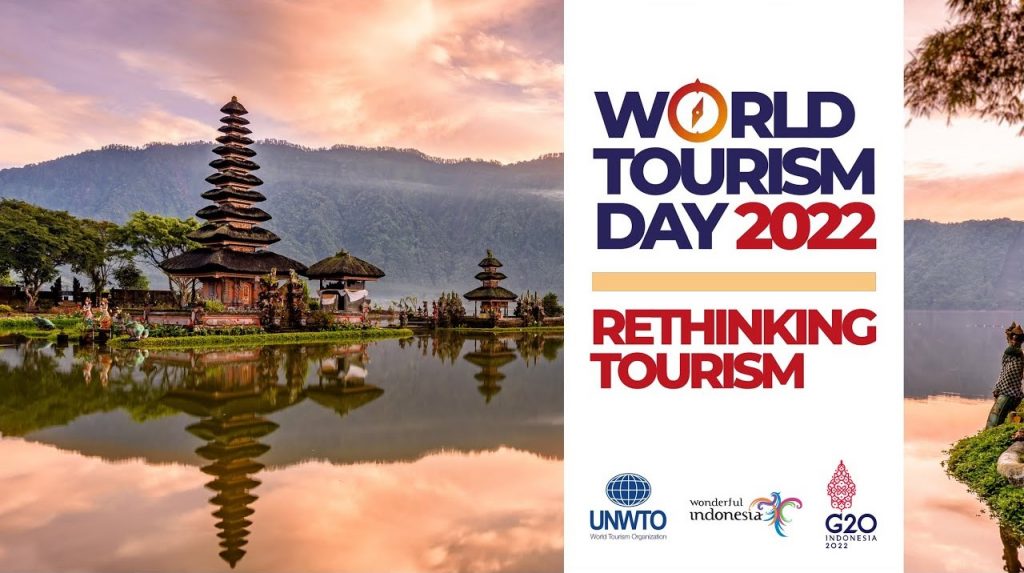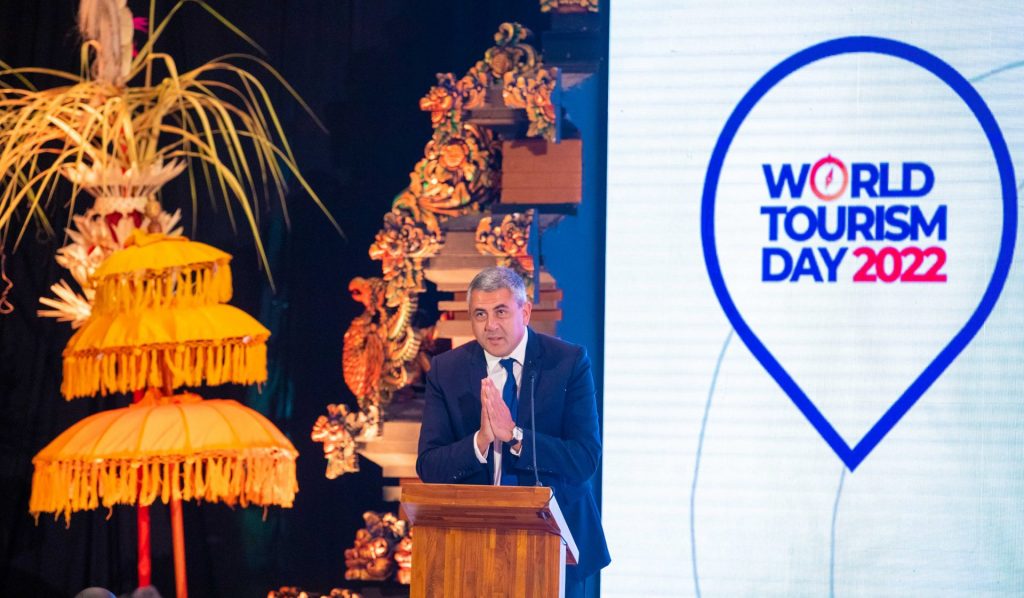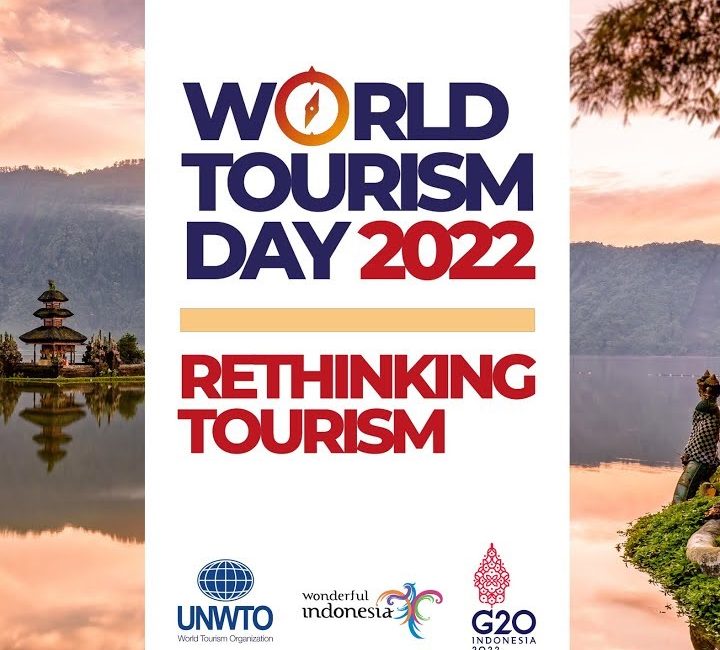Male’, Maldives, 28th September 2022 – World Tourism Day is celebrated across the globe on 27th September every year in the spirit of fostering awareness amongst the international community on the significance of tourism and its social, cultural, economic and political impacts.
This year, UNWTO was joined by the Ministers of Tourism of Indonesia, the Kingdom of Bahrain, the Republic of Korea, Fiji, Spain, and the Kingdom of Saudi Arabia, alongside the Vice Ministers of Tourism for Cambodia and Japan and high-level representatives from Germany, Canada and the United States of America. The official celebrations for the 42nd edition of the World Tourism Day were held in Bali, Indonesia, held under the theme of “Rethinking Tourism”.
“Rethinking Tourism” means reassessing every part of the tourism sector, from what we do to how we do it and its impacts. With World Tourism Day 2022 taking place at a pivotal time for the sector, it is essential to seize the moment and reflect on how we have been doing as a industry and how we can improve in the future.

Tourism’s relevance is now clearer than ever before, with our growth from crisis to transformation in the recent years. This year’s theme embodies this crucial change and highlights the industry’s unique potential to drive positive change for people everywhere, across multiple areas by creating social change and more opportunities for people. In addition to this, the tourism industry must come together and take assertive action towards fulfilling our responsibilities towards sustainability and climate action.
The celebrations for the World Tourism Day 2022 united leaders from across the world, including the largest and most diverse number of Ministers of Tourism in the history of this occasion, as well as leaders from the public and private sectors and tourism stakeholders. At the opening, UNWTO Secretary-General Zurab Pololikashvili emphasised the event as an opportunity to pause, reflect and recalibrate. He said, “The restart of tourism everywhere brings hope. It is the ultimate cross-cutting and people-to-people sector. It touches on almost everything we do – and everything we care about. Tourism’s potential is now recognised more widely than ever. It’s up to us to deliver on this potential.”

The central message for this year is, without a doubt, positive transformation for both the people and the planet. This message was stressed by the Minister of Tourism for the Republic of Indonesia, Sandiaga Uno, in his statement addressing the potential of tourism to bring about wide-reaching changes. He said, “The most important assets in tourism are its people and the planet. We must ensure the best support for both.” This year, Indonesia was commended by the UNWTO for taking concrete steps towards this committment by becoming the first country in the Asia and the Pacific region to sign the Glasglow Declaration on Climate Action in Tourism, which aims to reach Net-Zero emissions for the sector by 2050.
As stated by the United Nations Secretary-General António Guterres: “Tourism has the power to foster inclusion, protect nature & promote cultural understanding. We must rethink and reinvent the sector to ensure its sustainability.” World Tourism Day aims to inspire the debate around rethinking tourism for development, putting people at the centre of ket discussions. With stakeholders from every part of the tourism sector’s broad value chain participating at the event, the event served as a platform that amplified inclusive dialogue regarding tourism’s potential as a vehicle for change and its next steps.

Furthermore, UNWTO published the G20 Guidelines on Strengthening MSMEs (Ministry of Micro, Small and Medium Enterprises) and Communities as Agents of Transformation in Tourism. This aims to pave the way for a people-centred recovery and a more sustainable, inclusive and resilient sector. The Guidelines provide guidance for key policies that can foster such growth for MSMEs and communities, centred on the pillars of human capital, innovation, youth and women empowerment, climate action, policy, governance and investments.
Tourism’s end goal remains the 2030 target for sustainable development, and it is critical that every part of the sector rethinks how they can achieve this. It is up to the broad and diverse international tourism sector, small businesses and the destinations themselves to change things across all levels. It is important that the international organisations, governments and local authorities support the sector through this transformation. UNWTO calls for new voices and new ideas to build a better tourism for all and realising tourism’s full potential for positive changes.




